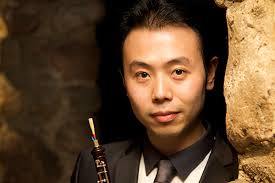BBC Radio 3 misses out on young musicians
mainThe National Youth Orchestra – the future of music in Britain – has signed a partnership deal with Classic FM (see below). The deal should have been made by the BBC, which couldn’t get its act toegther stuck as it is in aging demographics, endless committees and civil-servant stasis (pictured).
Whether it’s the right deal for the NYO remains to be seen. For Classic, however , it’s a win-win. For the BBC, lose-lose. The next musical generation is lost to the BBC.

press release:
The National Youth Orchestra of Great Britain (NYO) and Classic FM today announce that NYO is to become Classic FM’s Orchestra of Teenagers.
The partnership with Classic FM, the UK’s biggest classical music station with more than 5.5 million listeners each week, underlines NYO’s vital role in national cultural life and will enable a wider audience than ever to engage with its work.
NYO and Classic FM will work together to inspire a new generation of young concert goers and a major focus of the partnership is a £5 ticket scheme for under 25s. Classic FM will promote the offer to its listeners, encouraging more young people to experience NYO’s acclaimed performances. Through special programmes during the year, Classic FM will also showcase the work of NYO, using its impressive roster of alumni.
Classic FM has already supported NYO in recruiting the 2015/2016 musicians by promoting its nationwide auditions on-air. This resulted in just under 800 applications from outstanding young players, all Grade 8+. The partnership follows the 2015 launch of NYO Inspire, an initiative aimed at giving teenagers of all backgrounds experiences of orchestral music both as musicians and audience members. This was the biggest expansion in NYO’s 67-year history, and in its first year alone reached 1556 young musicians.
Classic FM has seen a considerable increase in the number of listeners under 25 years of age in the last five years. Not only that, it is also the most socially engaged commercial radio station in the UK on Facebook. The brand has more than 170,000 direct engagements each month and 273,000 likes.
NYO is at the pinnacle of youth orchestras worldwide. Uniquely, it is comprised entirely of teenagers and is renowned for its brilliant, high-adrenaline and fresh orchestral performances. It is also known for its profound influence on classical music, with high-profile alumni such as Sir Simon Rattle, Alison Balsom and Judith Weir, and ex-NYO members in many leading orchestras and ensembles around the world.
Sarah Alexander, Chief Executive of NYO, says: “We are on a mission to be a driving force in engaging teenagers in classical music. With Classic FM, we hope to further open the classical door to a whole new generation of listeners and bring the totally brilliant performances of our outstanding musicians to even wider audiences.”
Sam Jackson, Managing Editor, Classic FM, says: “We’ve recently seen a really significant increase in younger listeners to Classic FM: official figures now show that more than 440,000 under-25s now tune in every week. At Classic FM, we’re passionate about introducing classical music to everyone – and when it comes to inspiring the next generation of listeners and concertgoers, there are no better ambassadors than these wonderful musicians.”





Well, it might mean that Classic FM serve up more than their usual “Hall of Fame” diet.
Otherwise the NYO will get to know a certain few works very, very well.
I doubt it means either of the things you imply. It need not mean a change of broadcasting, and neither need it mean the YO change what they do.
> the Hall of Fame covers several hundred works; more diverse than you might think, and certainly more than an average member of the NYO is likely to play with them in their time as a member
> the number of broadcast opportunities for NYO will not be substantial, since they only assemble a number of times per year; so the number of works they would have a chance to play on-air won’t be substantial anyway
> the NYO plays as much “standard rep” as new or non-standard rep, so the players will already be getting to know standard repertoire very well anyway, regardless of a ClassicFM association
> it is quite possible, then, for ClassicFM to put together programmes with the NYO for broadcast (plus possibly offering performance opportunities) which suit their audience without changing what the NYO do anyway as a matter of course.
The BBC is damned if it does, and damned if it doesn’t. It can’t do everything, and it’s usually attacked when it tries. Perhaps it would have been appropriate to forge a connection with the NYO, but it’s not like the BBC doesn’t already do a lot for youth music. But just imagine the headlines and the vitriol in the right-wing press if they had signed a partnership. All that ‘taxpayers’ money going to yet another orchestra, unfair commercial advantage etc etc.
Doubt it. I’d think the Telegraph and the Times would welcome it, the Sun and the Mail wouldn’t care to mention it, and who said anything about money changing hands?
Does that mean they will lose their yearly trip to the BBC Proms? If so many parents will be unhappy.
The fact that they have done a yearly prom when the regional professional symphony orchestras only get one every other year shows that the BBC has supported them pretty well.
Why would you suggest any risk of losing it? The regional orchestras who share ClassicFM branding have lost neither Proms appearances nor R3 broadcast opportunities, so I can’t see where this comment comes from.
Did John Whitingdale write this article?